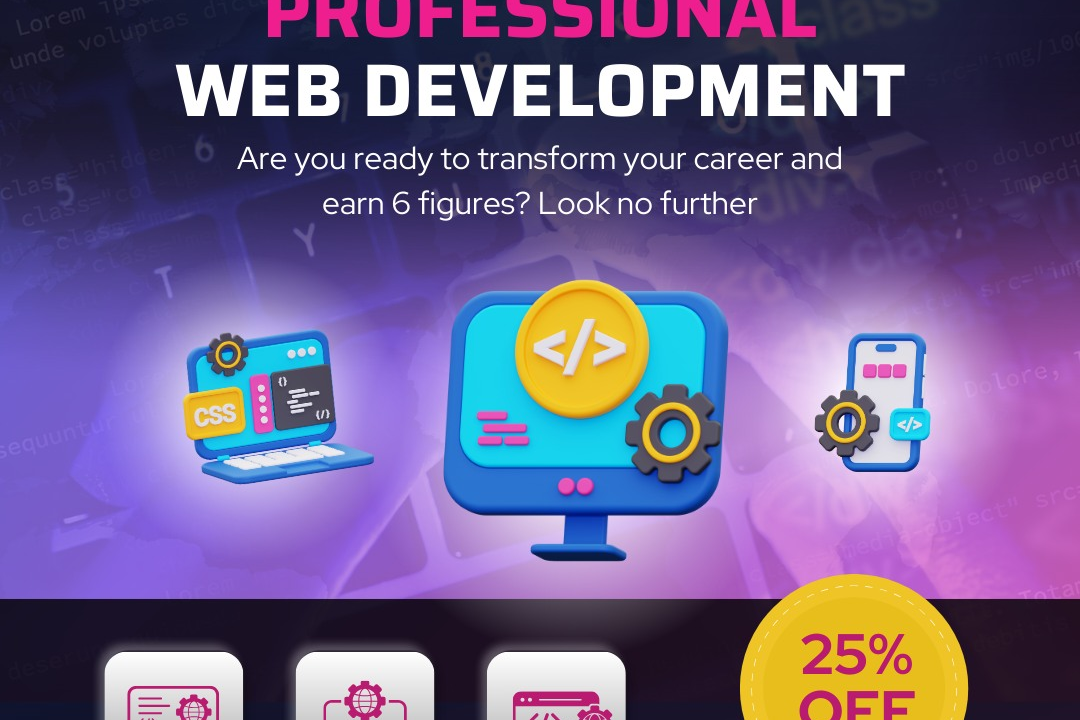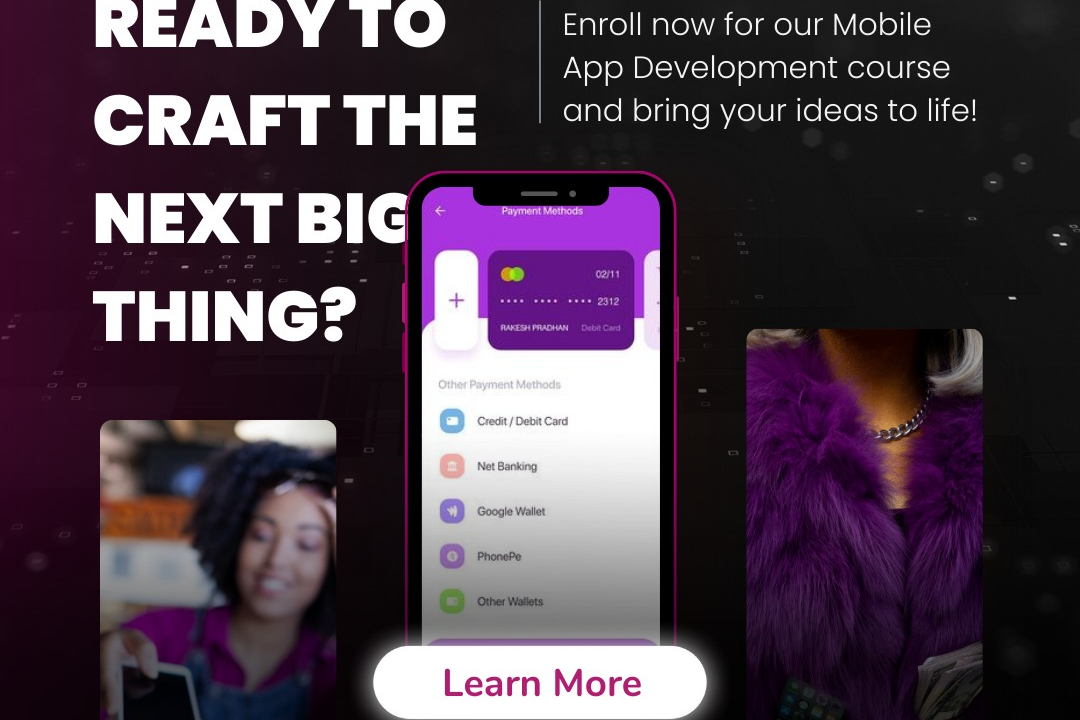How Many Bases Of Programing For Php
PHP programming is built on several fundamental bases that form the foundation for developing dynami
How Many Bases Of Programing For Php
The foundational bases of PHP programming—such as variables and data types, control structures, functions, arrays, and object-oriented principles—are essential for building dynamic, efficient, and scalable web applications. Understanding these core concepts enables developers to write clean, maintainable code that responds effectively to user interactions and data processing requirements. Mastery of these bases not only simplifies complex programming tasks but also fosters the creation of secure and robust websites, making PHP a versatile and powerful tool in web development.
To Download Our Brochure: https://www.justacademy.co/download-brochure-for-free
Message us for more information: +91 9987184296
The foundational bases of PHP programming—such as variables and data types, control structures, functions, arrays, and object oriented principles—are essential for building dynamic, efficient, and scalable web applications. Understanding these core concepts enables developers to write clean, maintainable code that responds effectively to user interactions and data processing requirements. Mastery of these bases not only simplifies complex programming tasks but also fosters the creation of secure and robust websites, making PHP a versatile and powerful tool in web development.
Course Overview
The “How Many Bases of Programming for PHP” course provides a concise overview of fundamental programming concepts essential for PHP development, including variables, control structures, functions, arrays, and object-oriented programming, empowering learners to build dynamic web applications efficiently.
Course Description
This course covers the essential programming foundations for PHP, including variables, control flow, functions, arrays, and OOP, enabling learners to develop dynamic web applications effectively.
Key Features
1 - Comprehensive Tool Coverage: Provides hands-on training with a range of industry-standard testing tools, including Selenium, JIRA, LoadRunner, and TestRail.
2) Practical Exercises: Features real-world exercises and case studies to apply tools in various testing scenarios.
3) Interactive Learning: Includes interactive sessions with industry experts for personalized feedback and guidance.
4) Detailed Tutorials: Offers extensive tutorials and documentation on tool functionalities and best practices.
5) Advanced Techniques: Covers both fundamental and advanced techniques for using testing tools effectively.
6) Data Visualization: Integrates tools for visualizing test metrics and results, enhancing data interpretation and decision-making.
7) Tool Integration: Teaches how to integrate testing tools into the software development lifecycle for streamlined workflows.
8) Project-Based Learning: Focuses on project-based learning to build practical skills and create a portfolio of completed tasks.
9) Career Support: Provides resources and support for applying learned skills to real-world job scenarios, including resume building and interview preparation.
10) Up-to-Date Content: Ensures that course materials reflect the latest industry standards and tool updates.
Benefits of taking our course
Functional Tools
1 - PHPStorm:
PHPStorm is an advanced IDE tailored specifically for PHP development, offering intelligent code completion, real time error detection, and debugging capabilities. It streamlines the coding process by providing a user friendly interface, integrated version control, and seamless integration with tools like databases and web servers. Students learn to write cleaner and more efficient code, troubleshoot issues faster, and manage large projects with ease, making development more productive and less error prone.
2) Visual Studio Code (VS Code):
A lightweight yet powerful code editor that supports PHP through extensions. It offers features like syntax highlighting, code snippets, debugging, and Git integration. The customizable environment allows students to tailor their workspace for optimal coding efficiency. Learning to use VS Code helps students understand versatile development setups, making it easier to switch between different programming projects and collaborate effectively.
3) XAMPP/WAMP Server:
XAMPP and WAMP are local server environments that allow students to run PHP and MySQL on their personal computers. These tools simulate a live web server, enabling hands on development, testing, and debugging of PHP applications without requiring web hosting services. They provide an easy setup process and include Apache, MySQL, PHP, and phpMyAdmin, essential for understanding web application deployment.
4) Git and GitHub:
Version control systems like Git are crucial for managing code changes efficiently. Students learn to track revisions, collaborate with peers, and revert to previous versions if necessary. GitHub complements these skills by providing a platform for sharing projects, code review, and collaborative development. Mastering these tools prepares students for industry standard workflows involving source code management and team collaboration.
5) Database Management Tools (phpMyAdmin, MySQL Workbench):
phpMyAdmin offers an intuitive interface for managing MySQL databases, allowing students to create, modify, and query databases easily. MySQL Workbench provides a more advanced, graphical approach for database design, performance tuning, and complex queries. These tools help students understand database integration, data modeling, and efficient data handling within PHP applications, essential for building dynamic, data driven websites.
6) Postman:
Postman is an API testing tool that helps students understand how to develop and test RESTful APIs. It provides a user friendly interface to send HTTP requests, analyze responses, and automate testing workflows. Learning Postman equips students with the skills to build interconnected web services, ensuring their applications can communicate effectively with other systems and services, which is a vital aspect of modern web development.
7) Browser Developer Tools:
Most web browsers include built in developer tools for inspecting HTML, CSS, and JavaScript. These tools assist students in debugging front end code, analyzing network requests, and optimizing page performance. Familiarity with browser developer tools is essential for diagnosing frontend and backend issues, ensuring a smooth development process, and delivering professional quality web applications.
8) Debuggers and Profilers:
Tools like Xdebug enable step by step debugging of PHP code, helping students identify logical errors and understand code execution flow. Profiling tools analyze application performance, highlighting bottlenecks and resource usage. These tools enhance troubleshooting skills, improve application efficiency, and foster a deeper understanding of complex codebases, making students industry ready for high performance PHP development.
9) Docker:
Docker helps create lightweight, portable containers for development, testing, and deployment. Students learn to package their PHP applications along with all dependencies, ensuring consistency across different environments. This skill is increasingly important in modern DevOps practices, as it simplifies deployment, reduces compatibility issues, and accelerates development cycles.
10) Code Quality and Testing Tools (PHPUnit, PHP_CodeSniffer):
PHPUnit is a testing framework that encourages test driven development, ensuring code reliability through automated tests. PHP_CodeSniffer enforces coding standards, promoting consistency and best practices across projects. By mastering these tools, students develop robust, maintainable applications, reduce bugs, and adhere to industry coding standards, which are vital for professional PHP development.
11 - Composer:
Composer is a dependency management tool for PHP that simplifies the process of including libraries and packages in projects. It automatically handles versioning, updates, and autoloading, allowing students to integrate third party tools and frameworks efficiently. Learning Composer ensures students can build scalable, maintainable applications by leveraging a vast ecosystem of PHP packages.
12) Laravel Framework:
Laravel is a popular PHP framework that accelerates web development with built in features like routing, ORM (Eloquent), templating, and middleware. It promotes clean code architecture and best practices, making it easier for students to develop secure and scalable web applications. Familiarity with Laravel enhances their ability to work on enterprise grade PHP projects.
13) Symfony Framework:
Symfony is a highly flexible PHP framework known for its modularity and reusable components. It provides a robust foundation for building complex web applications and services. Learning Symfony helps students understand design patterns, component based architecture, and clean coding principles, preparing them for enterprise level development.
14) REST API Development & Integration:
Students learn to design, develop, and consume RESTful APIs, which are critical for creating interoperable web services. They understand concepts like endpoints, request methods, status codes, and data serialization (JSON, XML). This knowledge enables building applications that communicate effectively with external services and mobile apps.
15) Frontend Technologies (HTML, CSS, JavaScript):
A basic understanding of frontend technologies complements PHP development. Students learn to create responsive, user friendly interfaces and integrate server side logic seamlessly. This full stack approach enhances their versatility and ability to develop complete web solutions.
16) Authentication & Security Best Practices:
Students explore techniques like session management, encryption, SSL/TLS, and input validation to secure web applications. They learn about common vulnerabilities (SQL injection, XSS, CSRF) and how to prevent them. Emphasizing security prepares students to build trustworthy applications compliant with industry standards.
17) Cloud Hosting & Deployment:
Training on deploying PHP applications on cloud platforms such as AWS, Azure, or DigitalOcean enables students to understand scalable hosting environments. They learn about server provisioning, CI/CD pipelines, and scalability considerations, which are essential for launching real world applications.
18) CMS Development & Customization:
Students explore developing and customizing Content Management Systems (like WordPress, Joomla, or Drupal) using PHP. This skill broadens their ability to create dynamic websites quickly, adapt existing platforms, and understand CMS architecture, catering to various client needs.
19) Unit Testing & Test Automation:
Beyond PHPUnit, students learn to write effective unit and integration tests, ensuring code robustness. Automating tests helps catch bugs early, improve code quality, and foster a disciplined development approach aligned with Agile practices.
20) Performance Optimization Techniques:
Students delve into caching strategies, database indexing, code profiling, and load balancing to enhance application speed and responsiveness. Understanding performance tuning is vital for handling high traffic websites and ensuring optimal user experience.
21 - Agile & DevOps Practices:
Training includes Agile methodologies like Scrum and Kanban, as well as DevOps principles such as Continuous Integration/Continuous Deployment (CI/CD). These practices streamline development workflows, promote collaboration, and enable rapid deployment cycles.
22) Mobile App Backend Integration:
Students learn how to develop APIs suitable for mobile app integration, enabling them to build backend services for cross platform applications. This expands their ability to create comprehensive solutions combining web and mobile technologies.
23) Code Documentation & Best Practices:
Emphasizing code commenting, documentation standards, and coding conventions ensures that projects are maintainable and scalable. Good documentation practices facilitate teamwork and long term project success.
24) Soft Skills & Industry Readiness:
Beyond technical skills, training includes communication, teamwork, problem solving, and project management. These soft skills are crucial for thriving in a professional environment and delivering client focused solutions.
25) Certification & Portfolio Development:
All courses include industry recognized certifications and guidance on building professional portfolios. This prepares students to showcase their skills confidently to potential employers or clients, enhancing their career prospects.
Each of these points integrates with JustAcademy’s core mission of providing skill based, practical training through real time projects, ensuring students are well equipped for the evolving demands of the PHP development industry.
Browse our course links : https://www.justacademy.co/all-courses
To Join our FREE DEMO Session:
This information is sourced from JustAcademy
Contact Info:
Roshan Chaturvedi
Message us on Whatsapp:
Email id: info@justacademy.co












